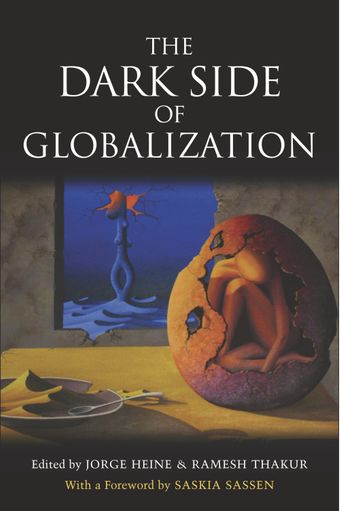- Home
- Books
- The Dark Side of Globalization
- Chapter
Introduction: Globalization and transnational uncivil society

- Authors: Jorge Heine and Ramesh Thakur
- Main Title: The Dark Side of Globalization , pp 1-16
- Publication Date: October 2013
- DOI: https://doi.org/10.18356/1a82a51d-en
- Language: English
- Previous Chapter
- Table of Contents
- Next Chapter
It has been said that being against globalization is like being against the sun coming up every morning, and about as fruitful. That may or may not be the case, but there is little doubt that globalization, that is, the increased flow of goods, services, capital, data and cultural products across international borders, has been one of the driving forces of international affairs over the past 30 years. In the light of the 20089 world financial crisis, some questions have been raised as to whether this will continue to be the case the World Trade Organization reported a 12.2 per cent drop in world trade in 2009 (WTO 2010) or whether we will enter a process of deglobalization. However that may be, since the Third Industrial Revolution was launched in 1980, when the first personal computer and round-the-clock television news from CNN came on the market, information technology (IT) and telematics have been bringing the world closer together and deterritorializing it. We may not be living at a time of the end of history, as Francis Fukuyama famously argued (1992), but a case can be made that we are moving towards the end of geography as we had known it. The effective, real cost of a telephone call from New Delhi to Denver is no different from one made from New Delhi to Mumbai.
© United Nations
ISBN (PDF):
9789210563352
Book DOI:
https://doi.org/10.18356/b6fed040-en
Related Subject(s):
Economic and Social Development
Sustainable Development Goals:
-
From This Site
/content/books/9789210563352c004dcterms_title,dcterms_subject,pub_keyword-contentType:Journal -contentType:Contributor -contentType:Concept -contentType:Institution105
/content/books/9789210563352c004
dcterms_title,dcterms_subject,pub_keyword
-contentType:Journal -contentType:Contributor -contentType:Concept -contentType:Institution
10
5

